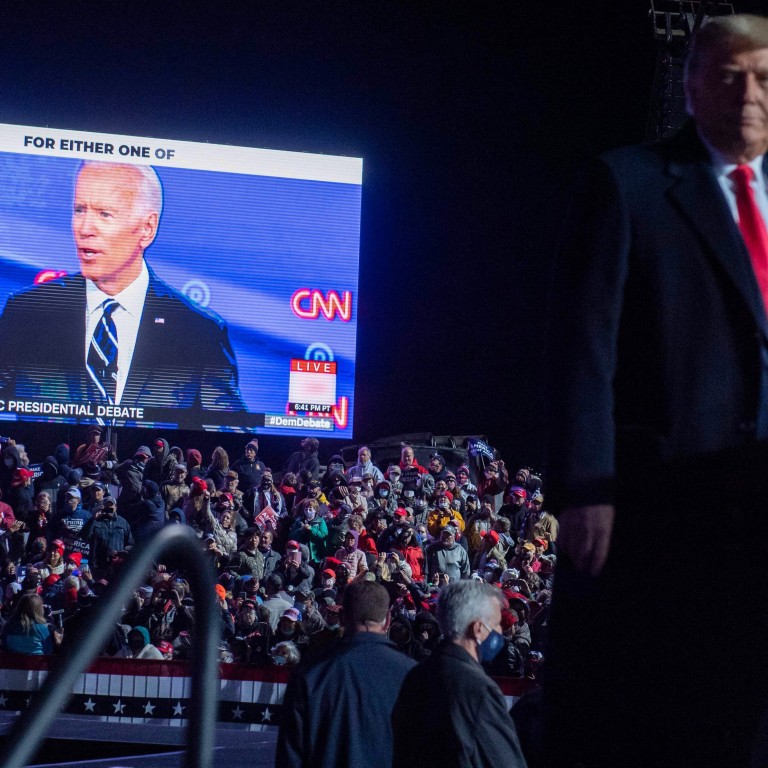
US election: what would the Trump and Biden foreign policy teams look like and how is China affected?
- The poll on November 3 comes amid consensus that the US needs a tougher stance on China but the candidates diverge on trade, allies, immigration and decoupling
- In discussion of China’s human rights failings, Biden has described Xi Jinping as a ‘thug’; Trump says if Biden wins, China wins
At a rally last week in Johnstown, Pennsylvania, Trump honed in on this message: “This election is a simple choice – if Biden wins, China wins, all these other countries win, we get ripped off by everybody. If we win, you win, Pennsylvania wins, and America wins, very simple.”
On Trump’s side, his China advisers have been notably divided between the trade-focused camp, including US Treasury Secretary Steven Mnuchin and US trade representative Robert Lighthizer, and the China hawks, like US Secretary of State Mike Pompeo and deputy national security adviser Matt Pottinger.
But despite efforts to push Beijing, China’s trade figures showed its surplus with the US was 43.6 per cent higher in September than in January 2017 when Trump first took office.
With the trade deal having lost its sheen, issues such as the South China Sea, Chinese technology and Beijing’s repression in Xinjiang, Tibet and Hong Kong have come to the fore.
Pottinger, a fluent Mandarin speaker and former US correspondent who was arrested while reporting in China, has also been key in shaping a more confrontational policy, including reportedly pushing the term “Wuhan virus” to focus blame for the pandemic on China.
Other notable figures include Trump’s son-in-law and adviser Jared Kushner, who served as a backchannel with Chinese officials, and the fervently anti-immigration adviser Stephen Miller, who lobbied Trump to end all student visas for Chinese nationals.
Trump-Biden final debate: China ‘will be forced to play by international rules’
Many of those who served in the foreign policy apparatus under Barack Obama’s administration when Biden was vice-president are expected to take up key roles if he wins the race for the White House.
Michèle Flournoy, a former undersecretary of defence and likely Biden candidate for US defence secretary, argued in a June piece for Foreign Policy that it would take a “concerted effort to rebuild the credibility of US deterrence” to reduce the risk of war with China.
Is Donald Trump hoping his China-bashing can help him win re-election?
Antony Blinken, a former deputy secretary of state, has also been a senior Biden foreign policy adviser. Last month at a US Chamber of Commerce event, he said it was “unrealistic and ultimately counterproductive” to seek to fully decouple from China, and that the focus should be on expanding US strategic ties with allies.
Others of influence in the Biden orbit include former national security adviser Colin Kahl, senior foreign policy adviser Jake Sullivan, former deputy national security adviser Ely Ratner and Jonathan Schanzer, senior vice-president at the Foundation for Defence of Democracies think tank.
Sullivan co-authored an analysis in May that said there were “unmistakable” and “ubiquitous” signs that China was seeking to contest US global leadership. He urged US investments in both military and technology tools to compete while at the same time defending US alliances and partnerships.

